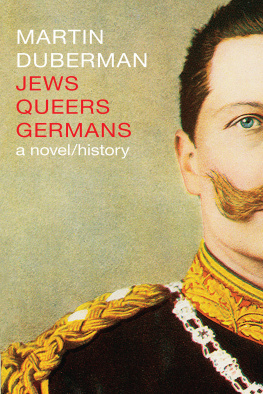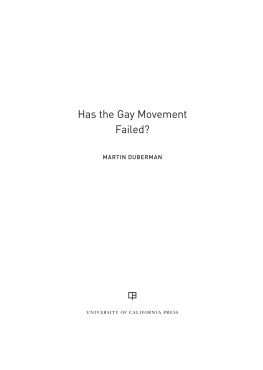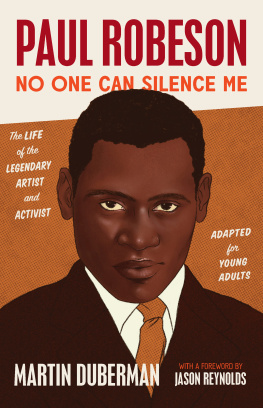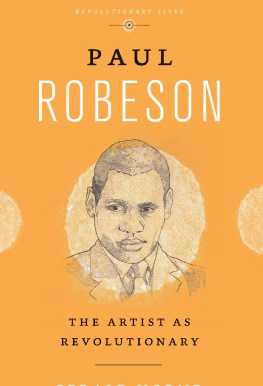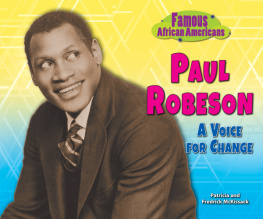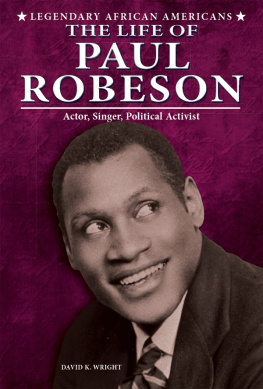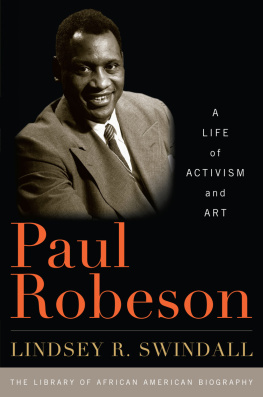Martin Duberman - Paul Robeson
Here you can read online Martin Duberman - Paul Robeson full text of the book (entire story) in english for free. Download pdf and epub, get meaning, cover and reviews about this ebook. year: 1995, genre: Non-fiction / History. Description of the work, (preface) as well as reviews are available. Best literature library LitArk.com created for fans of good reading and offers a wide selection of genres:
Romance novel
Science fiction
Adventure
Detective
Science
History
Home and family
Prose
Art
Politics
Computer
Non-fiction
Religion
Business
Children
Humor
Choose a favorite category and find really read worthwhile books. Enjoy immersion in the world of imagination, feel the emotions of the characters or learn something new for yourself, make an fascinating discovery.

- Book:Paul Robeson
- Author:
- Genre:
- Year:1995
- Rating:3 / 5
- Favourites:Add to favourites
- Your mark:
- 60
- 1
- 2
- 3
- 4
- 5
Paul Robeson: summary, description and annotation
We offer to read an annotation, description, summary or preface (depends on what the author of the book "Paul Robeson" wrote himself). If you haven't found the necessary information about the book — write in the comments, we will try to find it.
Paul Robeson — read online for free the complete book (whole text) full work
Below is the text of the book, divided by pages. System saving the place of the last page read, allows you to conveniently read the book "Paul Robeson" online for free, without having to search again every time where you left off. Put a bookmark, and you can go to the page where you finished reading at any time.
Font size:
Interval:
Bookmark:
Paul Robeson
A Biography
Martin Duberman

for Eli Zal
and
for my friends in the rooms
Contents
I have done the state some service, and they knowt.
No more of that. I pray you, in your letters,
When you shall these unlucky deeds relate,
Speak of me as I am, nothing extenuate,
Nor set down aught in malice.
Othello V. ii. 33943
Preface
In 1919, when Paul Robeson graduated from Rutgers as valedictorian, the class prophecy suggested that by 1940 he would be governor of New Jersey and the leader of the colored race in America. When 1940 came around, that prophecy had not been entirely realized butexcept for the governorship of New Jersey, for which Robeson had no ambitioncontinued to seem entirely plausible. By then he had added to his undergraduate laurels as scholar and All-American football player, international acclaim as concert artist, stage actor, recording and film star.
Although many white and almost all black Americans in 1940 shared a high estimate of Robesons accomplishment, their views of what it meant failed to coincide in some important ways. To the white world in general, Robeson seemed a magnetic, civilized, and gifted man who had relied on talent rather than belligerence to rise above his circumstances. Whites vaguely recognized in 1940 that he was beginning to emerge as a passionate defender of the underclasses, yet the lack of stridency and self-pity in his manner allowed them to persist in the comfortable illusion that his career proved the way was indeed open to those with sufficient pluck and aptitude, regardless of racethat the system worked.
Those whites who knew Robeson personally (and he had many white friends) recognized, more than the white world at large did, that his charismatic charm, his grace and generosity, real enough, were hardly a complete accounting of his personality. They had experienced his stubborn reserve, had seen his carefully controlled anger erupt, knew the limits of his gregariousness. By 1940, they also had become aware of his deepening political passion. They had heard him talk with a gravity dramatically different from the unemphatic ease of his usual public self-presentation about the importance of preserving African culture from the corrupting influence of the West. They knew of his deep dismay over the destruction of Republican Spain, his mounting commitment to what he viewed as the anticolonial and egalitarian impulses of the Soviet Union, his mounting anger at the blind ethnocentrism of Europes privileged classes in their continuing exploitation of colonial peoples.
Black Americans had watched Robeson work his way through the white world with an ease that seemed remarkableand in moments of optimism provided a ray of hope. Here he was in 1940, son of an ex-slave, risen to be a highly regarded interpreter not only of spirituals but also of the plays of Americas foremost white playwright, Eugene ONeill. He had already starred, as well, in a London production of Othello with Peggy Ashcroft and Sybil Thorndike, had sold out concert halls throughout Europe, had been a leading box-office draw in half a dozen films, and had, most recently, been the man chosen to sing on a nationwide radio broadcastto immense acclaimthe stirring, patriotic Ballad for Americans. With seemingly equal ease, Robeson had moved beyond artistic recognition to social acceptanceat least in sophisticated white circles in England, where he and his family had resided for much of the thirties.
True, the black actor Ira Aldridge had been hailed for his talent before Robeson, just as the singer Roland Hayes had also filled concert halls. But Robeson had combined both their gifts, had added an outstanding career in athletics, a degree in law, a scholars ability to summon up wide-ranging points of reference, and a linguists ability to communicate in several languages. And beyond all these accomplishments, and perhaps more inspiring than any of them to the ordinary black American, was Robesons deepening commitment to improving the lot of people of color around the world. Here was an important black artist who viewed his gifts and his worldly success not as ends in themselves, but as instruments for helping the race.
Most blacks were too open-eyed to believe, as most whites did, that Robesons success proved that the American system worked, that it even remotely offset the otherwise prevalent enormities of discrimination. Nor did most blacks interpret (as most whites did) the phenomenon of one exceptionally gifted black mans being allowed through the net as evidence that the net was porousor even that Robesons own acceptance was without very real boundaries and qualifications. Still, it was worth knowing, however much white America overemployed the information, that a few supremely gifted blacks did occasionally get the chance to demonstrate their gifts. It was worth even more to know that one such black had become determined to see that othersgifted or notgot their entitlement to a dignified life.
Had the class prophet resumed his duties in 1940 and tried to cast ahead yet another twenty years, he might have justifiably been confident that Robesons triumphs would multiply and his influence consolidate. This time he would have been woefully wrong. From 1940 to 1960 Robeson evolved fully from an artist with a conscience to an artist committed to political action. He moved from the view that his own accomplishments would open doors for others to the conviction that the doors remained so firmly secured that those who had somehow pushed through them had to see to their permanent dismantling as a primary obligation. During the years of Roosevelts New Deal, Robeson remained reasonably hopeful that white America would itself recognize the worst aspects of institutionalized racism and work to expunge them. But as the democratic impulses of the New Deal drained off into the intolerance of postwar McCarthyism, his real hope fastened on the ultimate transforming power of international socialism. He never ceased being an American patriotcontinuing to believe in the inspirational promise of the countrys principles, if not her practicebut the more white America failed, in the post-World War II years, to stand up for the rights of people of color, the more Robeson grew into a militant spokesman for the worlds oppressed. The countrys failure to set its house in order, to ransom its own promise, brought out in him notas in so many othersweary acquiescence but, rather, uncompromising anger, a dogged refusal to bow.
Robesons stand endeared him still further to those who shared his politics and his principles, but cost him dearly with the multitude of mainstream Americans who had once been among his admirers. By 1960 his career and health had been broken, his name vilified, his honoreven his good senseassailed, his image converted by a now hostile establishment from public hero to public enemy. Branded a Soviet apologist, kept under close surveillance by the FBI, his right to travel abroad denied by the State Department and his opportunities to perform at home severely curtailed, deserted by most of the beholden black leadership, Robeson became an outcast, very nearly a nonperson.
This extraordinary turnabout in what had been one of the great twentieth-century careers is a singularly American story, emblematic of its times yet transcending them, encompassing not merely Cold War hysteria during one moment in our history but racial symbolism and racial consciousness throughout our history. That a man so deeply loved all over the world could evoke in his own country such an outpouring of fear and anger may be the central tragedyAmericas tragedyof Paul Robesons story.
Next pageFont size:
Interval:
Bookmark:
Similar books «Paul Robeson»
Look at similar books to Paul Robeson. We have selected literature similar in name and meaning in the hope of providing readers with more options to find new, interesting, not yet read works.
Discussion, reviews of the book Paul Robeson and just readers' own opinions. Leave your comments, write what you think about the work, its meaning or the main characters. Specify what exactly you liked and what you didn't like, and why you think so.


